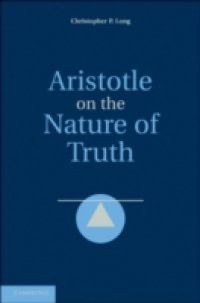This book reconsiders the traditional correspondence theory of truth, which takes truth to be a matter of correctly representing objects. Drawing Heideggerian phenomenology into dialogue with American pragmatic naturalism, Christopher P. Long undertakes a rigorous reading of Aristotle that articulates the meaning of truth as a co-operative activity between human beings and the natural world that is rooted in our endeavours to do justice to the nature of things. By following a path of Aristotle's thinking that leads from our rudimentary encounters with things in perceiving through human communication to thinking, this book traces an itinerary that uncovers the nature of truth as ecological justice, and it finds the nature of justice in our attempts to articulate the truth of things.

